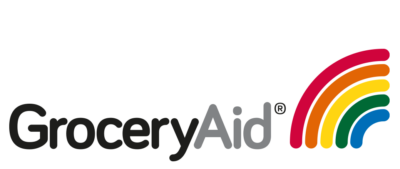
GET HELP
Business Money Advice
GroceryAid has partnered with Business Debtline to provide you with information to help deal with your debts.

Business Debtline is a charity providing free debt advice to self-employed people and small businesses in England, Wales and Scotland. Their expert debt advisers help thousands of people every year to improve their situation and take control of their business and personal debts.
Understand how your business is set up
To make sure that you get the right advice to put you in the best position to deal with your debts, it is important to know your trading status. The trading status is how your business is set up and it can affect how you deal with your debts. The three most common types of trading status are sole trader, business partnership and limited company.
Sole trader
You may be a sole trader if you are an individual and you work for yourself. If you are a sole trader, you will be personally responsible for debts built up through your business. If you do not pay, creditors can take action against you personally and both your business and personal assets could be at risk. For more information, see Business Debtline’s Sole traders fact sheet.
Business partnership
You could be a partner in a business partnership if you run your business with at least one other person. You will need to look at the partnership’s income and outgoings to help understand how it can deal with its debts. If a partnership cannot pay its debts, creditors are allowed to take action against an individual partner personally for all of the debt that the partnership owes to them. For more information, see Business Debtline’s Business partnerships fact sheet.
Limited company
If your business is set up as a limited company, it is legally a separate entity to you and any other directors and shareholders that the company may have. Unless you have personally guaranteed company debt, you will only be personally responsible for business debts in exceptional circumstances. Although you may be able to deal with company debt separately to your personal debts, you may have to consider how dealing with the company impacts on you personally. For more information, see Business Debtline’s Limited companies fact sheet.
If you are not sure of your trading status, contact Business Debtline for specialist advice.
Complete a budget
You will need to complete a budget to help understand how you may be able to deal with your business and personal debts. A completed budget will show:
- how much money there is coming in and going out;
- whether there is enough money to pay essential bills; and
- how much money, if any, there is available to pay your debts.
When you know your trading status, use Business Debtline’s Your budget tool to help find the right budget for you.
If you are a sole trader or a partner in a business partnership, the first step will be to complete a business budget. This involves listing income and spending figures for your business to help understand how much it can pay you. If your business is a limited company, an accountant or bookkeeper should be able to tell you how much the company can afford to pay you every month.
Once you have worked out what your business can pay you, the second step in completing Your budget is to list income and spending for your household. This will help you see how much money you have left over so you can work out the best way to deal with your debts.
If you need help with completing Your budget or you can’t find a budget sheet that suits your situation, contact Business Debtline for specialist advice.
Tips for completing your budget
- Look at the budget first and then gather paperwork that may contain the information you need to complete your budget. This could include your accounts, books, bank statements and bills.
- Use between 3-12 months’ worth of business figures to capture fluctuations in business income. The budget tool will automatically calculate a calendar monthly average for you.
- Don’t rush. It is important to complete your budget as accurately as you can. Take a break if you need more time, you can save the budget and return to it late.
Common business problems
We’ve teamed up with Business Debtline to offer you a range of fact sheets that give advice and information on common issues that businesses have to deal with.
Business rates – how to deal with arrears of business rates, including how you can negotiate an arrangement to pay the debt and the types of action a council can take to collect the debt.
Commercial energy debt – how to deal with gas and electricity debt at commercial premises.
Commercial property leases – what you can do if you are struggling with making rent payments and what your landlord can do if you can’t pay your rent.
Income tax debt – how you can deal with income tax arrears owed to Her Majesty’s Revenue and Customs (HMRC). The fact sheet explains your rights and the options you have.
VAT debt – information on Value Added Tax (VAT) and what to do if you have a VAT debt.
Managing your business finances – a guide on setting up good credit control to ensure cashflow, with information on dealing with unpaid invoices.
Closing a business – information on closing a business if you have to cease trading.
Contact Business Debtline
Dealing with debt can be overwhelming. But remember, you are not alone. The expert advisers at Business Debtline help over 100,000 self-employed people every year. If you need extra support to help tackle your debt, contact Business Debtline for advice and help on finding the best solution for you.
You can speak to an adviser over the phone or by webchat. For information on how to speak to an adviser, see Business Debtline’s contact us page.
If you’re based in Northern Ireland, you can find out more about business money advice here.

